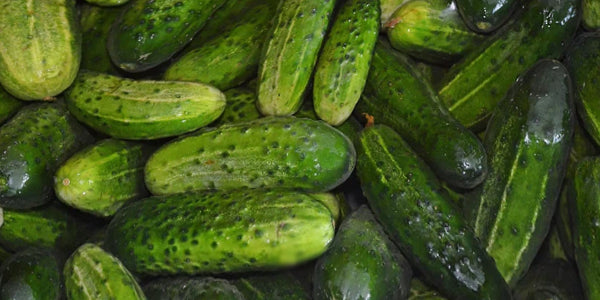If you suffer from gout, the chances are you will be willing to do almost anything to stave off that next flare-up. You might have taken your doctor’s advice and started to drink more water, take regular supplements, and change your diet. But even with guidance from a medical professional, it’s not always easy to know exactly which foods might be bad for gout - that is, without keeping your doctor on speed dial, which we’re sure they won’t be too happy about…
With this in mind, we’ve been wondering about one of the nation’s favourite foods: pickles. Whether you enjoy a pickled onion on a cheeseboard (which should be an occasional treat for any gout sufferers out there!) or find yourself eating a whole gherkin right from the jar, pickles are one of those versatile and delicious snacks that are enjoyed all around the world. But are pickles bad for gout?
What is the dietary advice for gout?
Gout is a type of inflammatory arthritis that mainly affects the joints in the foot, especially the big toes. However, like other forms of arthritis, it is also possible to experience gout in other joints around the body. While there is no evidence to suggest that diet changes can significantly affect the development of other arthritic conditions, gout is known to be linked to a common compound found in many foods: purines.
These common chemical compounds are found naturally in our bodies and in many of the foods that we eat. When broken down in the body, they form uric acid - another natural compound that is usually expelled from the body in our sweat and urine. However, when levels of uric acid are too high, uric acid crystals can begin to form in the joints, causing the pain and inflammation associated with gout.
Purines are among the most common chemical compounds on the planet. They are found in all types of foods, from red meats to leafy vegetables, making them almost impossible to avoid completely. However, it is possible to limit your intake of purines by following a low-purine diet. This usually involves limiting the consumption of some meats and fish, dairy products and alcoholic and sugary drinks.
So, what about pickles? Do we need to avoid them when adopting a gout-friendly diet?
What are pickles?
The term ‘pickles’ traditionally refers to any vegetables soaked in brine, vinegar or any other acidic brine. The technique has been used for thousands of years as a way to preserve food. In fact, it is thought that a similar process - fermentation - was first developed in China as early as 7000 BC! While these practices were primarily designed to make food last longer, it just so happens that they make them extra tasty, too!
How does pickling work?
The process of pickling involves submerging vegetables - such as baby cucumbers - in an acidic liquid - usually water, salt, vinegar, and sometimes sugar. Unlike making kimchi, pickling vegetables doesn’t involve fermentation (a chemical reaction between a food’s sugars and naturally present bacteria).
Instead, the acid in the pickling solution kills off any existing microorganisms in the food, prolonging its shelf-life. In the process, it gives the vegetables the crisp, sour, and tangy flavour that many of us enjoy on our burgers, tacos, and sandwiches.
Are pickles bad for gout?
Given the often high levels of sodium in pickles, it is often assumed that they will be a no-go for those living with gout. However, various studies have found that higher intakes of salt in the diet are actually associated with lower blood uric acid levels. Of course, that isn’t to say you should start heaping salt on all your meals.
The fact remains that consuming too much salt can contribute to serious health problems, including high blood pressure which, in turn, can increase the risk of heart attacks and strokes. But, there is another component in pickles that could make it a good snack for gout: a bacteria called Lactobacillus.
Lactobacillus is a type of lactic acid bacteria that occurs in high quantities in pickled and fermented foods. Past studies have indicated that Lactobacillus can play a role in the regulation of intestinal function and tumour resistance and it can even be purchased as a dietary supplement. Recently, new research indicates that this good bacteria may also be beneficial in reducing hyperuricemia, or high uric acid levels - a major risk factor for gout.
Conclusions
Pickles are a great (and tasty) way to get much-needed nutrients into your diet. When at their best, they retain much of the nutritional value of the raw vegetables used to make them. Furthermore, evidence suggests that, far from being bad for your flare-ups, pickles might actually be a good choice of snack when compared to many other options. Of course, it is still recommended to eat them in moderation, but you shouldn’t need to avoid pickles if you have gout!






